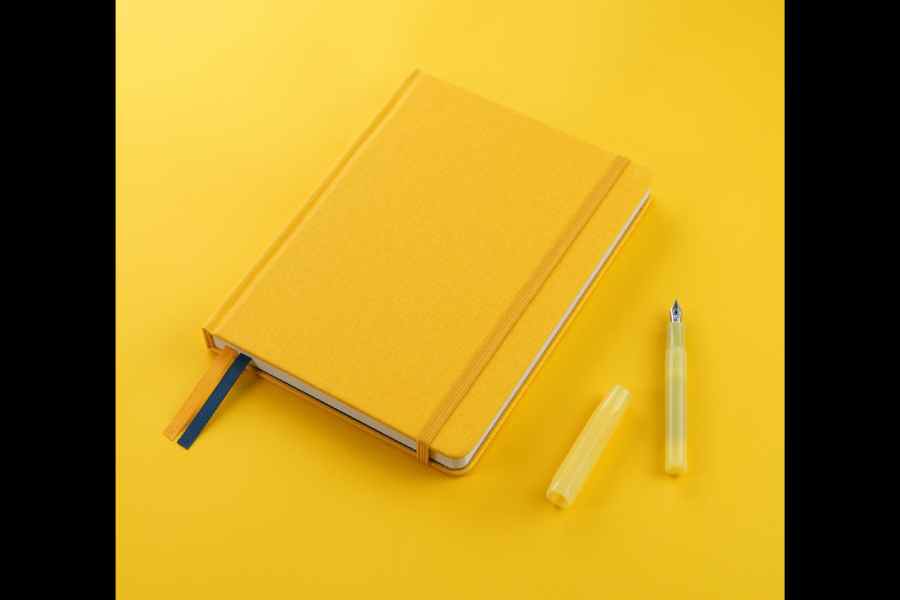THE YELLOW BOOK: A TRAVELLER’S DIARY
By Amitava Kumar
Harper Collins, Rs 699
One of the better ways to read the author, Amitava Kumar, is inside and outside trains. This is because his descriptions, and the thread of interiority that he ties them with, are best experienced between saccades of practised reflection. We come to romanticise our surroundings as paradigms of society, the crying baby arousing thoughts similar to James Baldwin’s (“The children are always ours, every single one of them, all over the globe,” from The Nation’s November, 1980 issue), we see the hapless mother in the image of Virgin Mary, or the odd labourer as a forthcoming union man. Kumar’s oeuvre enthrals readers with the miscibility of its subject matter; A Matter of Rats (2014), for instance, grows from a history of a mouse-eating people to a firm ribbing
of one’s homeland, one that is so prurient and yet so beloved.
In his latest entrée, titled The Yellow Book, he designs smooth vignettes that circulate around indicia of contemporary interests — the Covid pandemic, the grievous assault on Salman Rushdie, Kumar’s writing and London-strolling classes, encounters with intellectual life — but then spiral out in beatific splendour. The volume comprises distillations from public lectures, summarised essays, and despatches from a diary where, at one point, he eloquently jots down thoughts on rediscovering Joan Didion (an early morning text reads, in rare solemness, “Joan Didion died”). His approach to cultural commentary, here as elsewhere, has always been unconventionally dynamic, humorous, and personal. This one has him painting original artwork in the margins, too.
As Steven Spielberg recently captured, in a scene depicting divorce in The Fabelmans (2022), creative people suffer from an incurable generative instinct. Kumar, too, is transfixed at a railway station in London as he watches an approaching train run through a man, followed by the frightening image of “red vapour”. How the sausage gets made in the writerly life is harrowing. The book deals with part of that by capturing the writing of itself (because Kumar was writing the quoted diary while he was, in pieces, writing the book that contains it) and profiles a purlieu of rejections and revisions.
Lack of structure is pervasive, a feature necessary to create meaning through contingency. Even his students, he notes in his diary, worry about this crucial ‘structure’. In Everyday I Write the Book: Notes on Style (2020), the author attempted a meta-commentary. In my reading, his thesis was whether creative writing and fiction could be fused, and through chronicling various debates on the same, he eventually unified a collected criticism of that thesis with creative writing that was his own opinion on the matter. It doesn’t so much, then, provide notes (perhaps an instruction), but a roundtable on the academic subject of style, albeit with some practicable details. Some call it, and wrongly, abstruse.
The Yellow Book is suffused with the enlightening vim of John Berger, the piercing sagacity of Peter Schjeldahl, and an abutting of time and place that few are capable of accomplishing so well. It provides a liberated scullery for a life in letters, throwing light on the odd habit of mundane events of filtering through consciousness in the garb of stuff one has involuntarily committed to memory.
Amitava Kumar succeeds in putting down in words a feeling of sustained Stendhal syndrome through the length of the work. The crucial element that makes this brand of memoir sing is that it is outward-facing, linking observations with erudition, ricocheting off authors and artistes to condense a large web of monumental paraphernalia that is someone’s mind. In its indulgent soirées, useful abstractions and hearty metonymies, The Yellow Book is a gale of fresh, classic fare.











